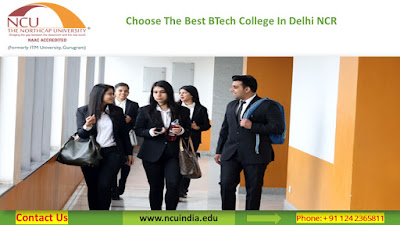Augmented
and Virtual Reality technology is engaging everyone towards itself and this
shows a belief of upgrading themselves on technology. According to Zion Market Research, the Global Augmented and Virtual
Reality Market will reach USD 814.7 Billion by 2025.
Zion Market Research has published a new report titled “Augmented and Virtual Reality Market by Device (Head-Mounted Display
(HMD), Handheld Device, Head-Up Display (HUD), Projector and Display Wall,
Gesture-Tracking Device, and Others) by Offering (Hardware and Software), by
Application (Consumer, Commercial, Enterprise, and Others), and by Vertical
(Entertainment & Media, Gaming, Healthcare, Aerospace & Defense, Manufacturing,
Retail, Education, and Others): Global Industry Perspective, Comprehensive
Analysis, and Forecast, 2018–2025’’.
While applications are still emerging, VR, AR, and MR are already
offering many benefits for the users that are savvy enough to embrace them.
- The Power of Immersion. One of the greatest AR/VR advantages in
advance tech-enabled gadgets and software solutions can immensely enhance user
engagement with multiple interactive activities. Digital extended reality
provide users with enticing virtual objects and makes them treat these objects
as real.
- Improved user experience. AR/VR solutions seem to be a note-perfect
option for gaining much attraction and retention among the global audience.
- A Better Trained Workforce.Virtual and mixed reality can standardize
training programs and make the overall process more effective. In a test
conducted by Google’s Daydream team, which is responsible for the
development of its virtual reality (VR) platform, researchers were able to show
that VR training was more impactful than video training.
- Simplified Maintenance Operations. Augmented
reality is not only invaluable as a teaching tool, but can also be used to
guide technicians through complex, repetitive tasks that must be done right
every time. One example of this comes from Mitsubishi Electric, which has
developed an inspection and maintenance system that utilizes 3D AR smart glasses.
Mitsubishi's technology first makes a 3D model of a machine with a tablet
camera. The 3D scan interacts with the glasses to provide a visual checklist
that guides the technician through which components of the machine should be
inspected. The technician can even verbally fill out an inspection report as he
or she is completing each step.

- Improved Quality Assurance. While
improved training and equipment maintenance will enhance productivity and
reduce downtime, quality assurance can also benefit from advancements in VR and
AR. the technology has the potential to go beyond this and enter the realm of
optical digitalization. 3D scanning for quality assurance is already a critical
tool for many industries. It’s used to compare a final part to its original CAD
design and ensure that all specifications are being properly met. Before long,
it will be common for this scanning and analysis to be conducted at every stage
of production via the employees’ headset or glasses.
The Top Industrial Companies who adopted AR/VR/MR
With VR-powered technologies and AR-oriented
devices flooding the tech market, there’s simply no denying the pace at which
these innovations are fast going mainstream.Innovations with AR, MR, and VRwith Facebook founder Mark
Zuckerberg hailing these technologies as the ‘next big things’ in the world of
the Internet, we are yet to witness their performances to compete for
potentials. Let’s just say, Virtual and Augmented Reality will soon become an
integral part of online operations.
On that note, it is time for us to take a look at how AR, VR,
and MR are being leveraged by industrial companies
1.
Simplifying critical and
complex tasks: Initiatives by Boeing
Augmented Reality plays a remarkable role in overlaying instructions. As
one of the leading aviation manufacturing company, Boeing has cut down their
error possibilities to a great extent. By leveraging AR technology, experts at
Boeing are installing electrical wiring on an aircraft is a complex task that
leaves zero room for error. That’s why Boeing is testing augmented reality as a possible solution to give technicians real-time, hands-free, interactive 3D wiring
diagrams and designs.
2. Introducing immersive experiences: Airbus innovations
Creating a virtual world and augmented environment can lead to multiple
benefits. Airbus, another commercial
aircraft manufacturing giant, has embraced the idea of implementing AR/VR/MR
technologies to introduce a holographic application. Customization and
configuration of cabin space is possible in real-time. which will act as a key
to create immersive experiences for their engineers. The opportunity to impart
lessons through shared 3D modules and holographic coach will also make the
entire experience engaging. For customers, employees and other stake holders.
3. Manufacturing vehicles and cars: GM embraces VR
General Motors (GM), the car manufacturing behemoth, took a step further and decided to
integrate Virtual Reality in their existing production processes. The prime
emphasis was to create an immersive and real-time virtual environment. The
manufacturers can see this particular data on a large projection screen, or
Cave Automatic Virtual Environment (CAVE). An immersive virtual reality
environment will help engineers and designers assess, view, and modify a
considerable amount of variants. Quite naturally, that will boost the entire
manufacturing process in a new way.
4. Leveraging complete potential of IT: Knowing the Siemens
approach
Information happens to be at the core of every technical process. That
paves the path for data analytics and synthesis. Siemens has come up with a
unique approach, where AR and VR technologies are used to analyze crucial data
sets that lead to improved industrial operations.
Ms Nisha Arya,
Industry
Engagement Manager,
***



















